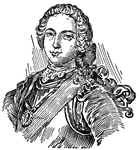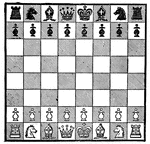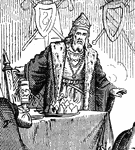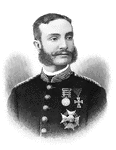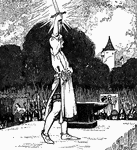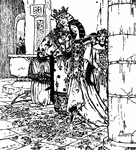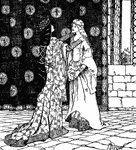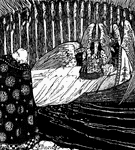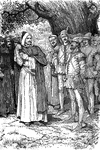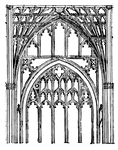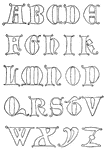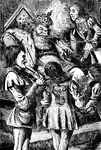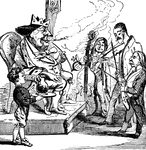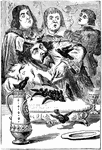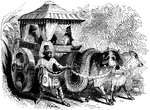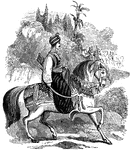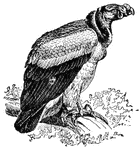
Vulture
In vultures, the head and neck are bare, the beak is long and curved at the tip, legs are powerful,…

Horseshoe Crab
Horseshoe crabs represent an order called Xiphosura, from the fact that the end of the abdomen is furnished…

King Bird of Paradise
Birds of Paradise are allied to the crows and found mainly in New Guinea. The king bird has beautiful…
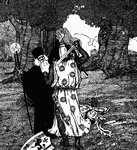
Merlin Saves Arthur
Arthur is about to be slain by the great Knight Pellinore but as he raises his sword against Arthur,…
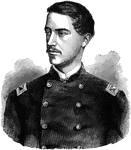
Ulric Dahlgren
"Colonel Ulric Dahlgren, born in Bucks County, Pa., in 1842, died near King and Queen's Courthouse,…
Kingfish
"King mackeral is also called kingfish. It is distinguished from other mackeral by weught, by its bluer…
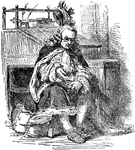
King in the Counting-House
Sing a Song of Sixpence. The king was in his counting-house, counting out his money.

General Rufus King
"General King, born in New York city, January 26th, 1814, died there, October 13th, 1876, was graduated…
!["Presentation of colors to the Twentieth United States [African American] Infantry, Colonel Bartram, at the Union League Clubhouse, New York, March 5th, 1864. The Twentieth Regiment, United States [African American] Troops, left Riker's Island at nine o'clock on the 5th of March, 1864, on board the steamer <em>John Romer</em>, and were conveyed to the foot of Twenty-first Street, East River, New York, where they were disembarked and formed in regimental line, and marched to Union Square, arriving in front of the Union League Clubhouse at one o'clock. A vast crowd of citizens, of every shade of color and every phase of social and political life, filled the square and streets, and every door, window, veranda, tree and housetop that commanded a view of the scene was peopled with spectators. Over the entrance of the clubhouse was a large platform, ornamented with flags and filled with ladies. In the street was another platform, tastefully decorated and occupied by prominent citizens. From the stand the colors were presented by President King of Columbia College, who addressed them with warmth and eloquence. After the presentation ceremony was over the men stacked arms and partook of a collation provided for them."— Frank Leslie, 1896](https://etc.usf.edu/clipart/11700/11749/presentcolor_11749_mth.gif)
Presentation of Colors
"Presentation of colors to the Twentieth United States [African American] Infantry, Colonel Bartram,…
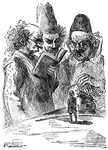
Scholars with Gulliver
After arriving at the King of Brobdingnag's court, Gulliver is analyzed by three of the King's scholars.
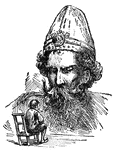
Gulliver and the King
Gulliver sitting in a chair, having a conversation with the King of Brobdingnag.
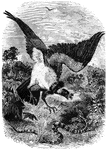
King Vulture
Genus sarcoramphus, a large vulture found in the tropical regions of the Americas, sometimes…

Funeral Cortege
"The funeral cortege, at boston, Mass., of the Sixth Massachusetts soldiers killed at Baltimore. The…
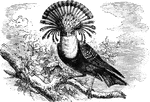
King Flycatcher
An impressive South American species of fly-catcher, with a transverse crest of reddish-fawn feathers.
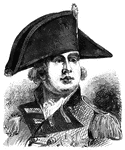
George III, King of England
"King George III, king of England during the old Confederation."—E. Benjamin Andrews, 1895

Benjamin Franklin
"Benjamin Franklin managed men, the whilom printer, king's postmaster-general for America, discoverer,…
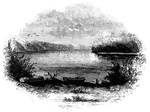
Fort Miller
Fort Miller fording-place. This was the crossing-place for the armies; and there are still to be seen…
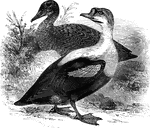
King Duck
Found in the Arctic regions of Europe, Asia, and North America, the king duck strongly resembles the…

King Penguin
Also known as the pantagonian penguin, the king penguin is found in the far southern latitudes of South…
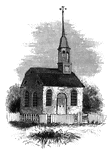
Caughnawaga Church
Caughnawaga church. This old church, now (1848) known as the Fonda Academy, under the management…
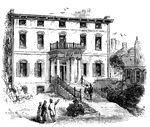
Province House
"The Province House. The Province House, the residence of the colonial governors, is still standing,…
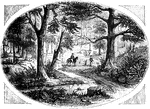
King's Mountain Battle-Ground
"View at King's Mountain battle-ground. This view is from the foot of the hill, whereon the hottest…

King's Bridge
"View at King's Bridge. This view is from the southwest side of the stream, from near the tide-mill.…
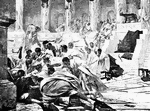
Caesar's Death
"The Death of Caesar. Naturaly such extraordinary success made him enemies, and though the city seemed…

Godfrey de Bouillon Tomb
"Tomb of Godfrey de Bouillon. During the Crusades, the Kingdom of Jerusalem in 1099. The conquered lands…
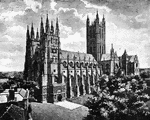
Canterbury Cathedral
"Canterbury Cathedral, which was a key place during the contest with King John. In the quarrel with…
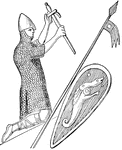
William the Conqueror
"William the Conqueror (1066-1087), as represented on his seal. Although William really ruled 'as king…
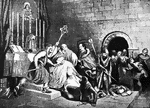
Death of Becket
"Death of Becket. During the early years of the reign Thomas A. Becket, as the king's chancellor, had…
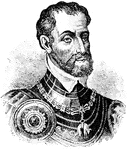
Charles V
"Charles V ruled over wider dominions than any European sovereign since Charlemagne. He belonged to…
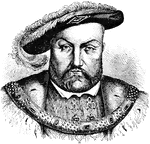
Henry VIII
"Henry VIII (1509-1547) came to the throne in 1509, inheriting a vast treasure which he owed to the…

Gustavus Adolphus
"Gustavus Adolphus entered Germany at the head of 16,000 men. Among some of the Protestants there was…
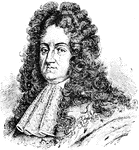
Louis XIV
"The age of Louis XIV. during the reign of Louis XIV, the son and successor of Louis XIII (1643-1715),…
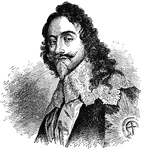
Charles I
"Charles I (1625-1649) was a far abler ruler than his father. He was a man of greater courage and more…
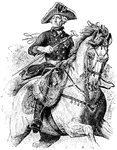
Frederick the Great
"Frederick II (The Great, 1740-1786). The young Frederick had been brought up in a rough school. His…
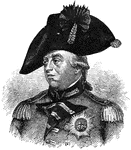
George III, King of England
"George III (1760-1815). The first two Hanoverian kings were ignorant of English politics and obliged…
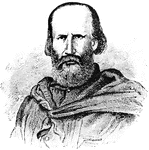
Garibaldi
"Garibaldi was a patriot who started up a revolt in Sicily and took possession of the island, then passed…
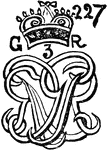
Stamp Act
"Stamp from the Stamp Act. The first direct issue of importance between the colonies and England came…
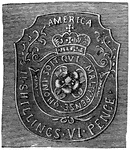
Stamp Act
"Stamp from the Stamp Act. The first direct issue of importance between the colonies and England came…
